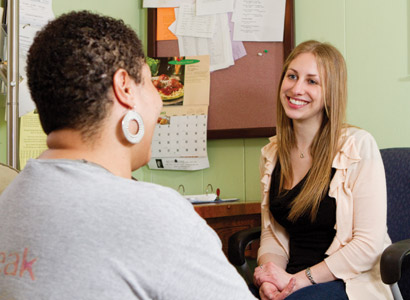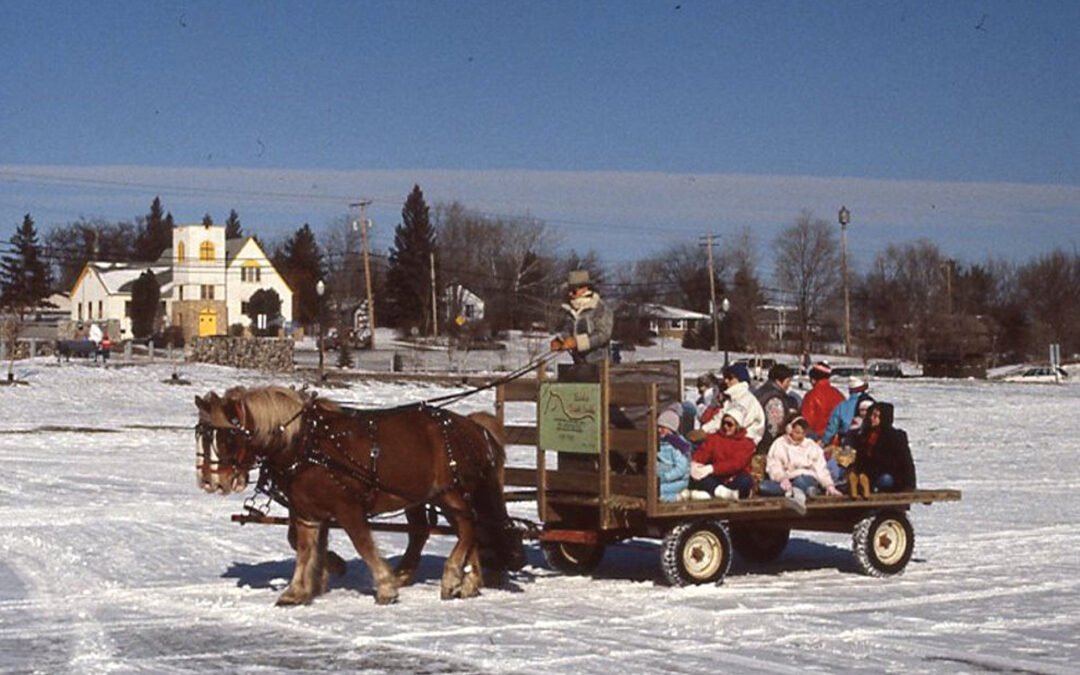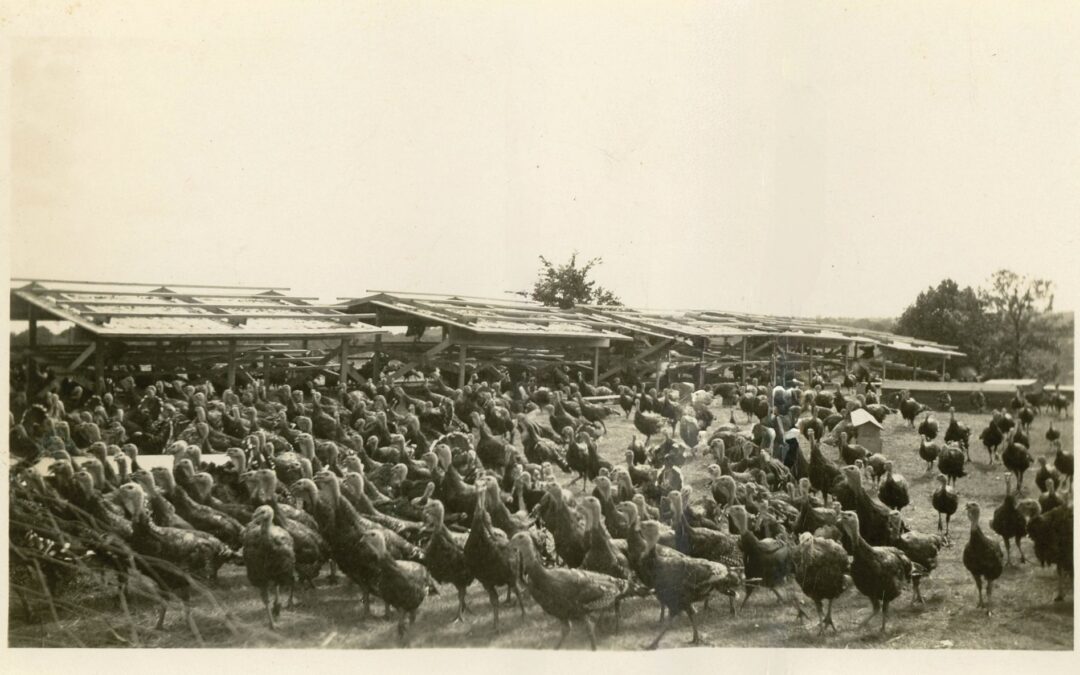
Women’s advocate volunteer Amy Toberman chats with a client at Home Free.
This longtime shelter for battered women adds a dose of compassion and heart to Plymouth.
How to create a safe haven for battered women—step 1: Volunteer. Kari Hitchcock has been involved with Home Free in Plymouth for 22 years. Her first few years at the women’s shelter were spent in the children’s programs, until she found her true calling working with the volunteers for the women’s programs.
Step 2: Educate. As community outreach coordinator, Hitchcock provides community education to help prevent domestic violence. Getting the education out to the public is the key, she says, to understanding the root of the problem and learning the ways you can prevent abuse. “The hope is that the more people who know about abuse, maybe the less that women are going to need us, eventually.”
Some of that hope comes from having a place like Home Free in the community, she says: Women no longer need to endure the frightening experiences they have with their partners alone thanks to the local safe place to go, even with children.
Home Free opened its doors in 1980. The shelter houses 30–35 women and children who can stay as many as 45 days at the house. The shelter is always at capacity, Hitchcock says: “Typically, we have to turn away about 60 percent of our phone calls for space availability.”
Step 3: Repeat. Hitchcock provides training for new volunteers seeking long-term opportunities to donate their time at the shelter—and there are several opportunities. Some work on an individual basis with the women and the children. Others work in group settings to help organize special events, such as parties for the families, or to add charm to the bedrooms with paint and style.
Volunteers can choose to dedicate their efforts to either the women’s or children’s programs—the option is open to anyone who wants to help, as long as that person can make the time commitment. Long term volunteers for the women’s program are expected to honor a year-long commitment working two to four 3-4 hour long shifts per month. A six-month commitment is required for those working in the children’s program. An application complete with a background check is required for volunteers.
Hitchcock has worked with a few advocates who have remained an important part of Home Free. Plymouth resident Amy Toberman has been actively involved since an acquaintance shared her positive experience as a volunteer. She always has been passionate about helping others, especially those who had encountered challenging situations, and one of the things she values most is that the shelter serves the community in which she grew up. “Working at Home Free allows me to connect with the people that I am helping on a personal level,” Toberman says, “and being able to actively make a difference in their lives and bring them hope is such a meaningful experience.”
The experience as a volunteer also helps the healing process for some abuse survivors. Chris McCullum of Plymouth arrived at the shelter 20 years ago seeking refuge from an abusive relationship. After she rebuilt her life, she wanted to give something back to other people in similar situations.
When it comes to ensuring a future of less domestic abuse, there’s much work to be done, Hitchcock says. “It’s important to be able to help women who are in violent situations, but equally important and valuable is the work involved in educating the public as to what occurs in abusive relationships and how they can help someone in a violent situation,” she says.
“It’s such a fulfilling experience to make a difference in the community through your time and actions,” McCullum adds. “One by one we can make small impacts to positively change our community.”
Home Free
To volunteer: 763.559.9008
24-Hour Crisis Line: 763.559.4945
missionsinc.org






















